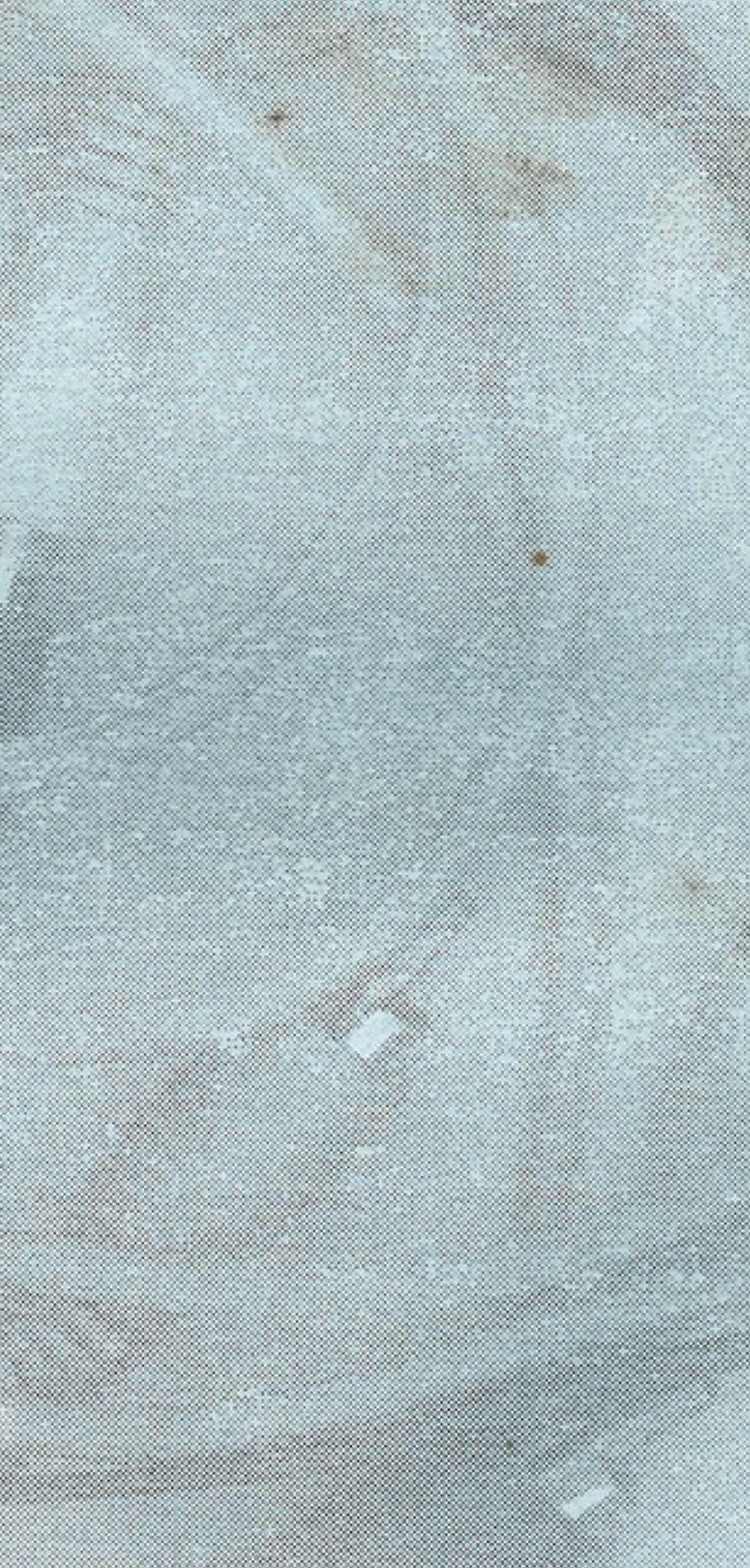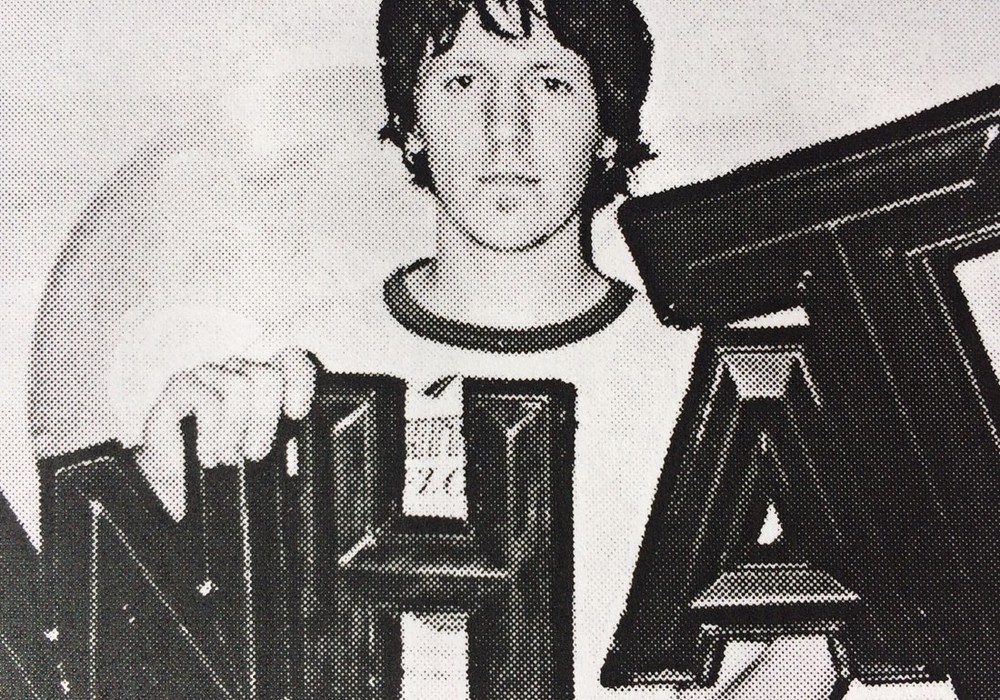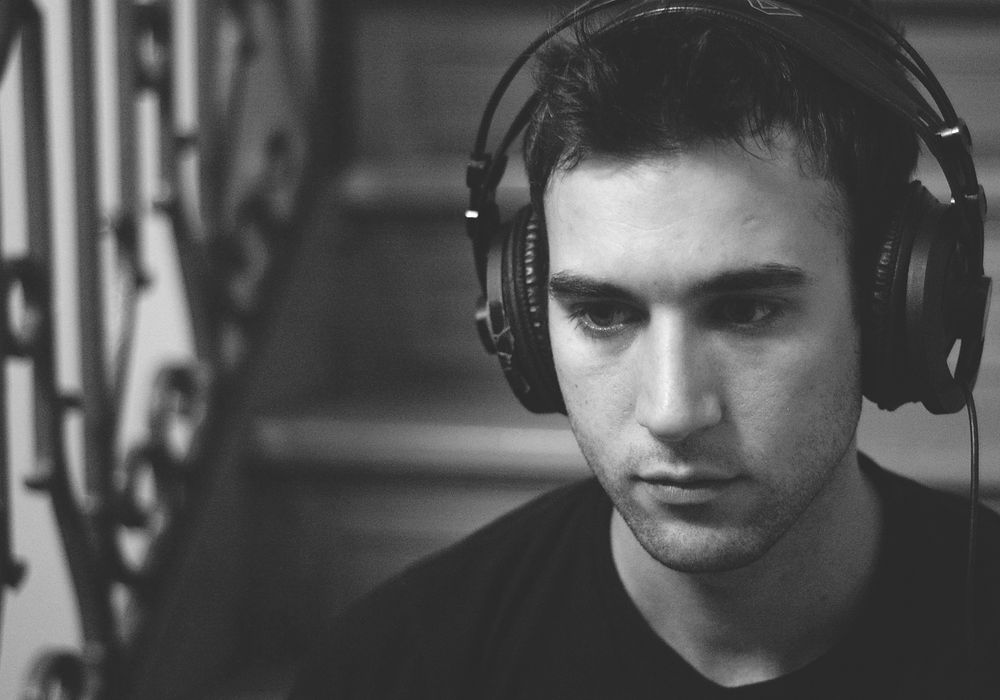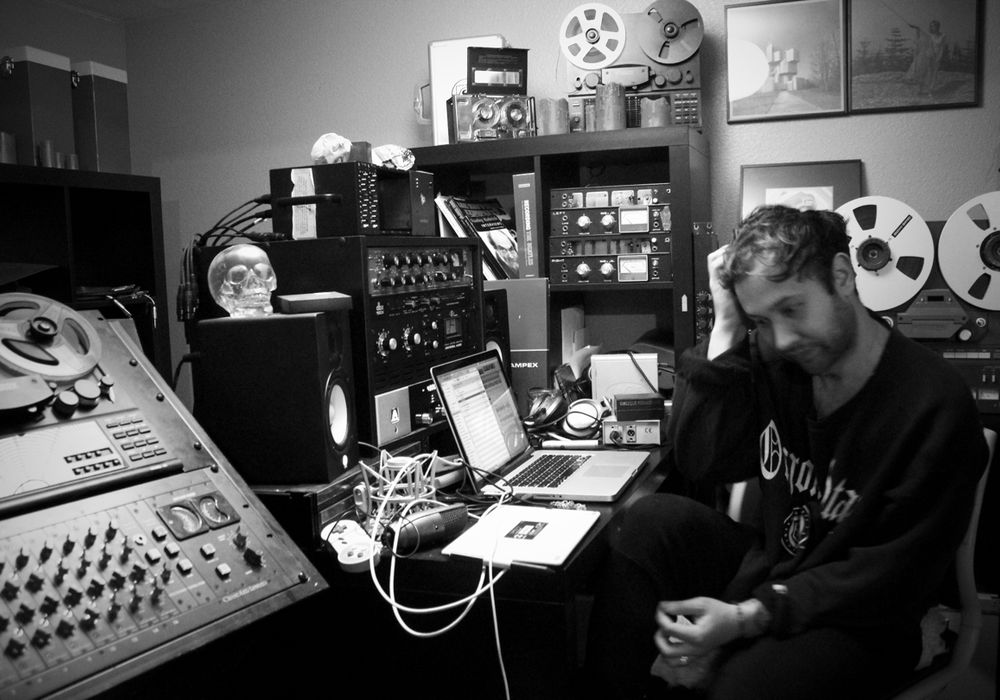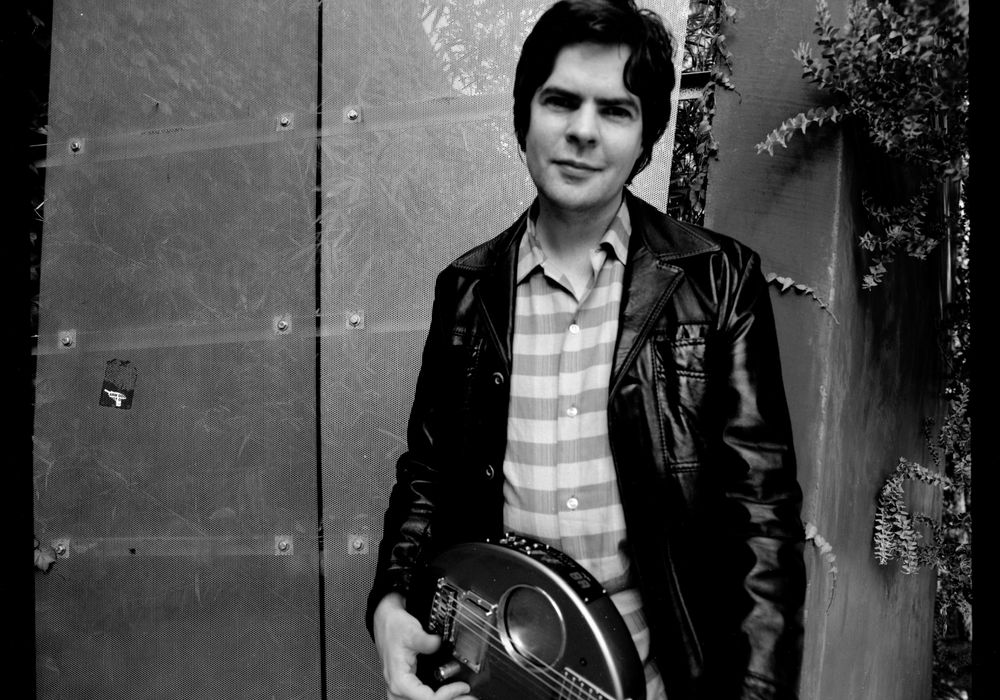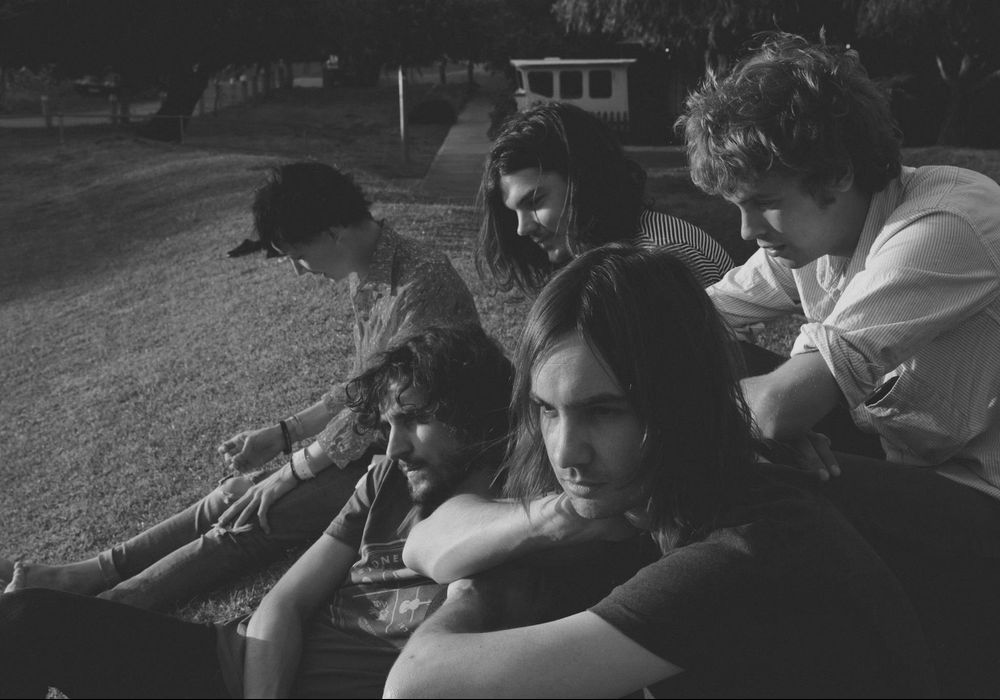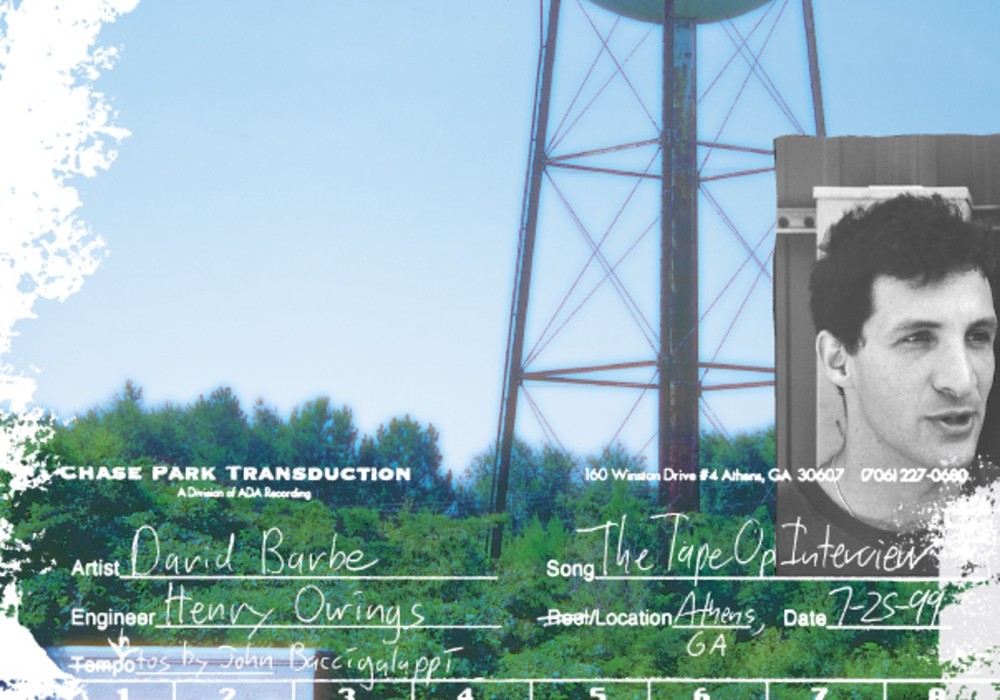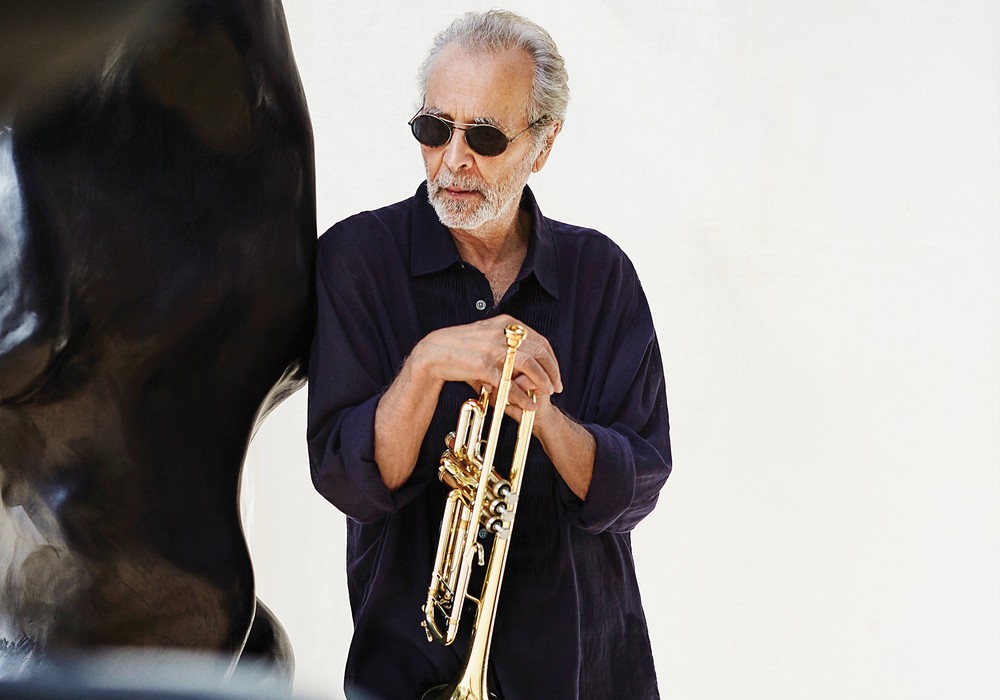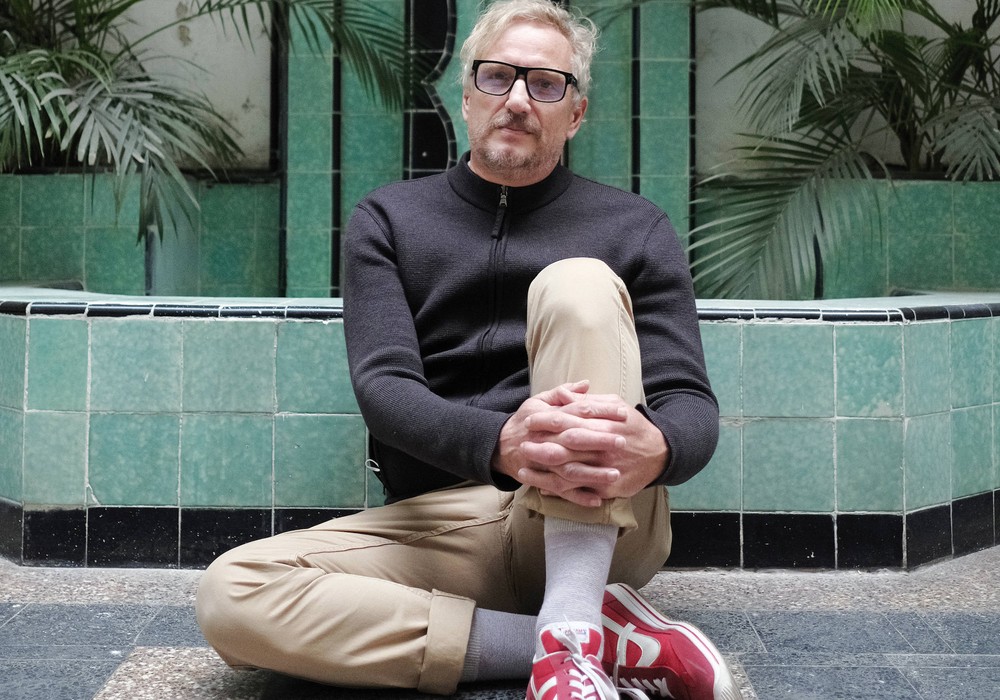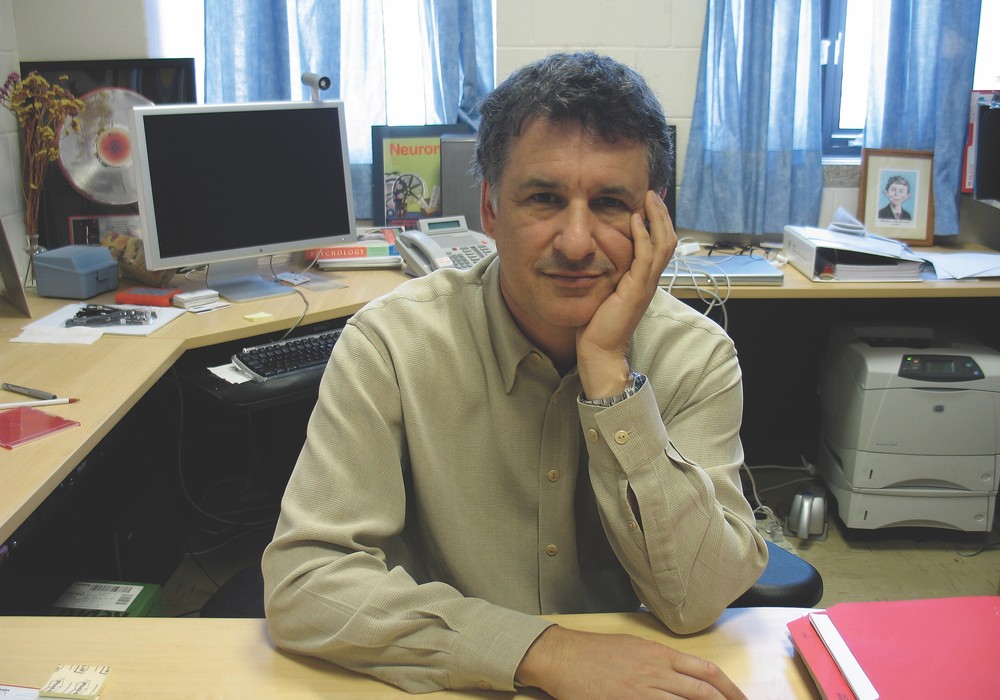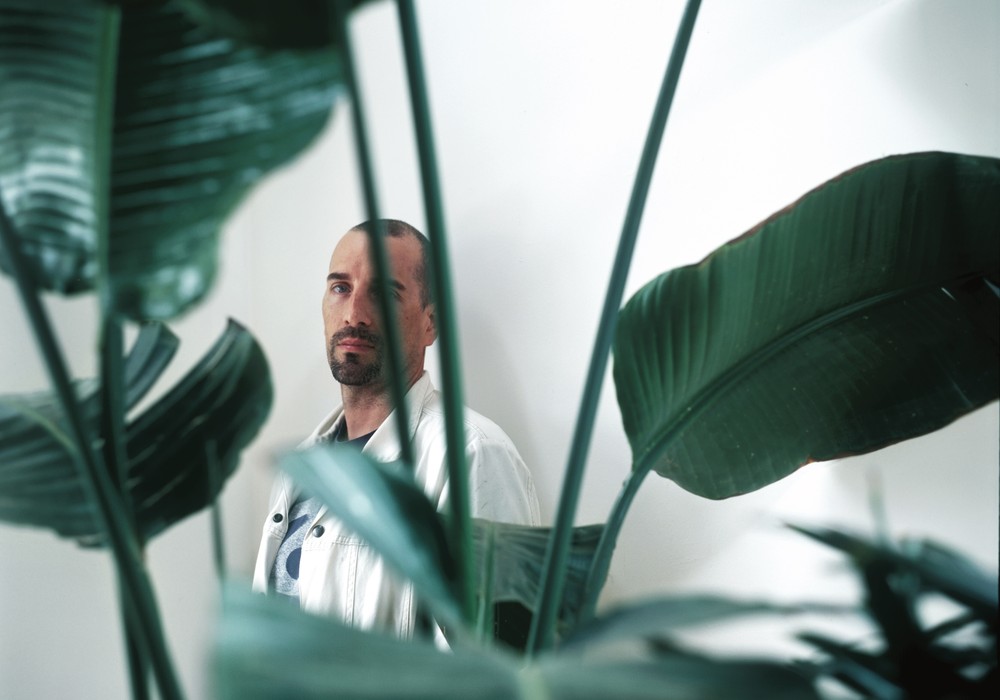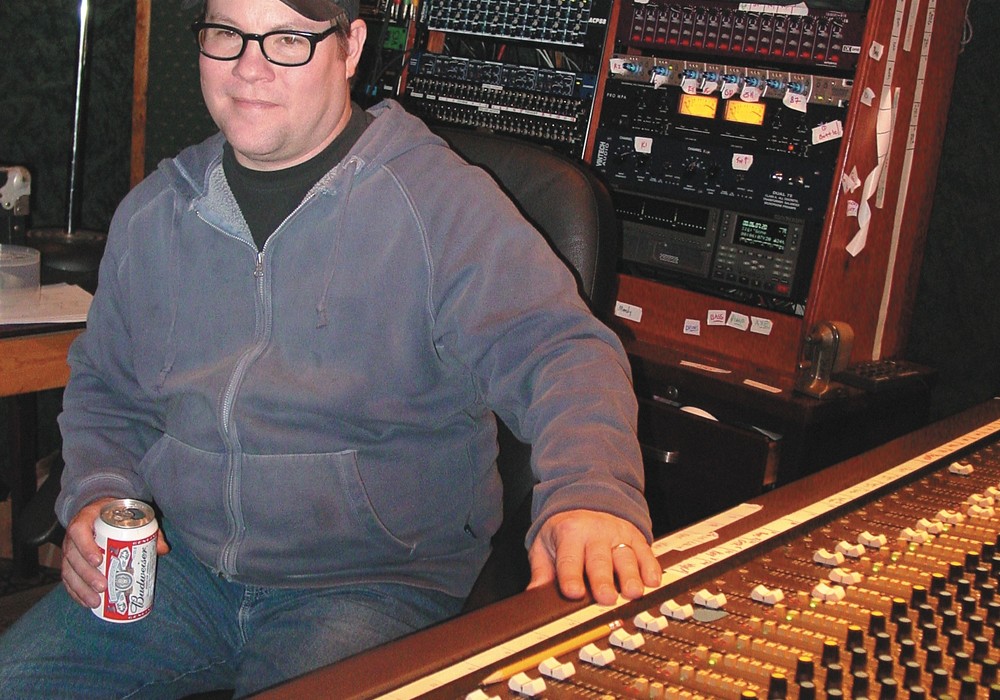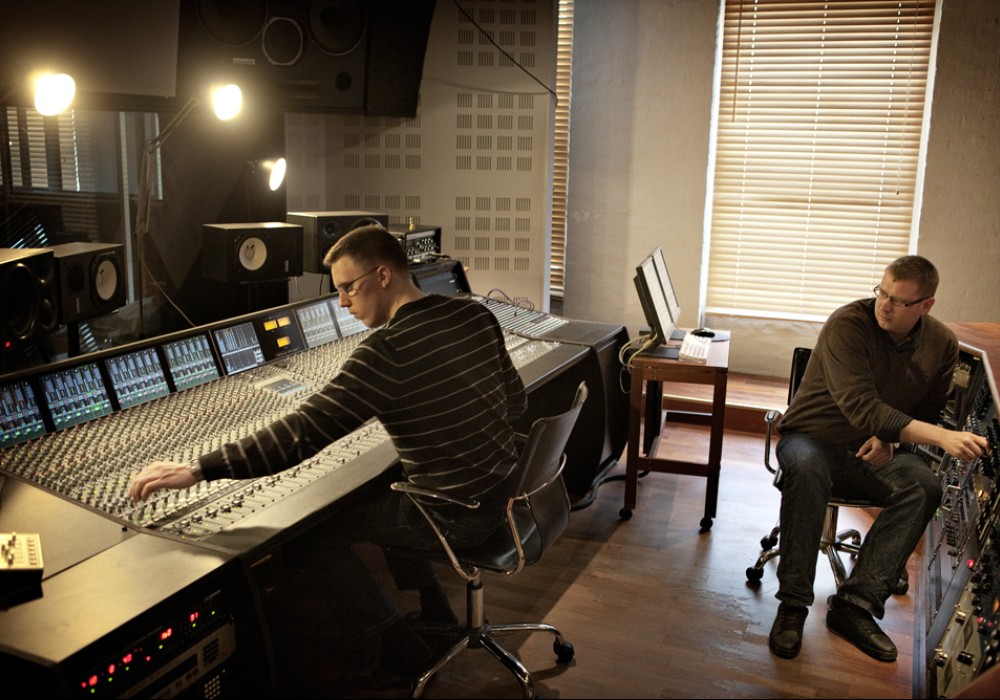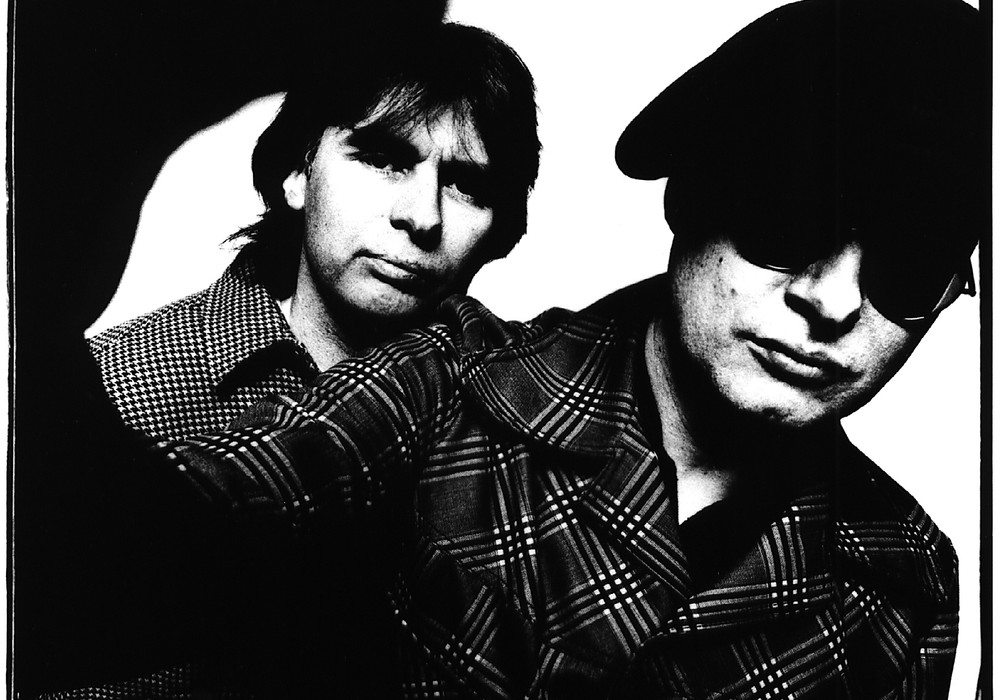It was, strangely, a sunny day in the middle of a Portland winter when I came by to pry Elliott out of a studio/office space (actually, it's a room off the side of the Undercover Inc. office) where he was working on "leftovers" from his 3rd solo album-in-progress. We went to a bar next door that had seating out back and sat in the sun. It was a pleasant yet odd setting to be discussing the creation and recording of his soul-wrenching music. In earlier work with Heatmiser, angst and loud guitars careened around. On his solo albums, minimal yet precisely double tracked guitars and vocals ache with guilt and longing. During the recording of the 3rd Heatmiser album, Mic City Sons, he was witness to the disintegration of the band in the studio. Yet we sit and talk of the craft of songwriting and recording, how they've intermeshed for him in the past, and how they're leading to his 3rd solo album, due out this Spring (on Kill Rock Stars Records).
Had you done four tracking before your first solo album was even a thought?
I've done it since I was 14 or so. Hours and hours of unmarked blank tapes. I've been doing that for a long time, I just didn't play them for anybody.
As a way to write songs?
Just to record. I could borrow a four track. It was something I could understand. Mixing boards and eight tracks 24 tracks and all that seemed like a really complicated nightmare. It seems like there's some point where the guy who works at the studio doesn't know what in the world is going on and is running around, checking all the connections--can't figure out why he's not getting tape delay on the snare or whatever.
Seeing that from the perspective of a band that's recording...
Pretty intimidating.
So you borrowed a four track back then?
I borrowed one for a really long time. A year at a time. It was a friend of mines' brother-in-law's, and he didn't really need it. One of those old Tascam ones with the big knobs.
Were you using that before you were ever playing music in a band?
Yeah. Sometimes I would sync up two of them by cuing them up and hitting play at the same time and constantly adjusting the speed on one of them to catch up with the other.
No way.
That's not that hard to do. It seems like it'd be a nightmare. A lot of them [four tracks] don't have speed controls now. The old ones had sweepable mids for EQ and speed control.
Did you record with drums and stuff or did you just do guitar?
Mostly just guitar. A lot of piano. I didn't have any drums.
Were you playing around with sounds or were you working more on songs?
I didn't really look at it as separate aspects back then. I was really taken with the prospect of being able to record one thing and then another thing at a different time that would play at the same time. It was all about parts and I didn't think much about sounds. I EQ'd things, but I just did it instinctively.
Did you have one mic you used on everything?
Basically. I think it was a [Shure SM] 57.
It's probably the best choice.
It's a good mic. People overlook it as soon as they can afford a more expensive one sometimes. It's the one. Somebody told me that the [Shure SM] 58 is really the same mic with a different grill.
It's got a boost in the high end so there's more treble to it. The screen can help dampen the popped p's but not completely.
The 57s are great. You can't really break them.
So you were four tracking. Did you find yourself playing music with others eventually?
I was in a band in High School. We didn't really play out--we just made tapes. We'd be recording an "album," so to speak, except it'd be an album we'd record to cassette four track and then make some tapes.
Was everybody in the band into the recording process?
Yeah, everybody was pretty into it. It was pretty exciting. It was something to do. It was a good way to spend time. I can't say much for the music though.
How would you record those kind of things? Would you record the drums first or would you play live?
The first thing that we did, we had this drum machine called Dr. Rhythm which was not slick in any way at all. It didn't sound even remotely, like real drums.
Analog sounds.
The cymbal went, "Chhhhhhhh."
White noise with a gate on it.
So we'd program that and play that and something else at the same time onto a track. We did a lot of bouncing or ping ponging, whatever you want to call it. We'd try not to put more than a couple of things on the same track. Everything was totally dead. We didn't have any effects at all. The next year after that, we had a real drummer...
